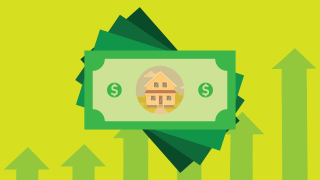
The pandemic has had a profound effect on prices in the U.S., but over the last year, the housing market has been hit especially hard.
Jeff Tucker, a senior economist at Zillow, said he’s never seen the housing market this hot, and that it all goes back to supply and demand.
WATCH ANYTIME FOR FREE
>Stream NBC10 Boston news for free, 24/7, wherever you are. |
The lack of supply, he said, can be traced to the 2008 recession, which slowed housing construction. Now, builders are working to catch up, but there just aren’t enough houses.
In addition, people have been reluctant to list their homes during the pandemic – a time of health concerns and financial insecurity.
Get updates on what's happening in Boston to your inbox. Sign up for our >News Headlines newsletter.
Low housing inventory is leading to crowded open houses, bidding wars and high sale prices.
Zillow’s Home Value Index data covers over 2,860 counties in the U.S and tracks the typical home value in an area. Over 90% of counties in America are represented in the dataset.
Since April 2019, 10.8% of counties saw the typical home value increase greater than 20% compared to 3.6% from 2017 to 2019.
U.S. & World
Housing Prices Have Seen Large Increases Since Before the Pandemic
Source: Zillow, U.S. Census
Credit: Andrew Williams/NBC
The median household income in Suffolk County is $69,669. Using the 3 times your annual gross income rule, the average household can afford a $209,007 home at most on that income, and the typical market price in April 2021 was $650,000 – a 12.07% increase since before the pandemic.
But there's another factor fueling the issue of supply and demand in the housing market and ballooning costs. There’s an unusually high number of people right now around the age of 30 – an average first-time, home-buying age for Americans.
“If you ask them, many of them may have said, ‘Yeah, I'm renting now but I'm probably going to buy my first home sometime in the next two or three years.,' " Tucker said. “Well, I think the pandemic pushed a lot of those people to go ahead and buy now.”
Millennials are now at the age where they're starting to have their first kids and thus a need for a bigger, family-sized home. Combined with the rise of remote work and historically low mortgage rates, the pandemic has given 30-somethings the perfect opportunity to pursue homeownership.
Mortgage rates have been at record lows since December. Tucker says they're hovering around 3% for a 30-year mortgage, and that a low mortgage rate can go a long way to making even a high home price affordable on a monthly basis.
While prices are skyrocketing around the country, there are specific areas that have been gaining the most traction.
Due to COVID-19, there was a migration from big cities like New York and Los Angeles to suburbs with promises of more room for Zoom and private green space. But experts say this wasn’t a sudden boom due to the pandemic, but rather an acceleration of pre-existing trends.
For several years, there's been trending migration from the Northeast, Midwest and California toward Sunbelt states like Texas according to Tucker.
Places like Houston, Dallas, Austin, Phoenix, Miami, Atlanta and Charlotte were already rapidly growing, but experts at Zillow say areas in the Intermountain West like Boise, Spokane and Salt Lake City have also recently become hot spots for homebuyers.
Percent Change of Population in Popular Areas Since 2010
Source: U.S. Census (2010 - 2019)
Credit: Andrew Williams/NBC
For buyers hoping for a repeat of the housing bubble recession, Tucker says don’t hold your breath. Most borrowers right now are getting fixed-rate mortgages, rather than ones with balloon payments, so there's no reason to expect that they will suddenly become unaffordable.
“We just don't see a lot of the risky pieces that were in place before during the housing bubble in the early to mid-2000s,” he said. “When we look at the loans that are going out, mortgage lenders are really carefully underwriting these loans, verifying that the buyers have the incomes they say they have and that they can afford the loans that they're taking out.”
What Tucker recommends instead is that you be prepared for competition in the current market. You should expect to see competing offers and for the chance that the sale price could end up higher than the list price.
Lastly, you should also be prepared to just wait.
Homebuyers historically gain more negotiating power in the fall and winter. Buyers have a few more options to choose from and a little less competition as the seasons change.
“Being willing to sit back and let a few houses get away to avoid overpaying can be worthwhile,” Tucker said.



